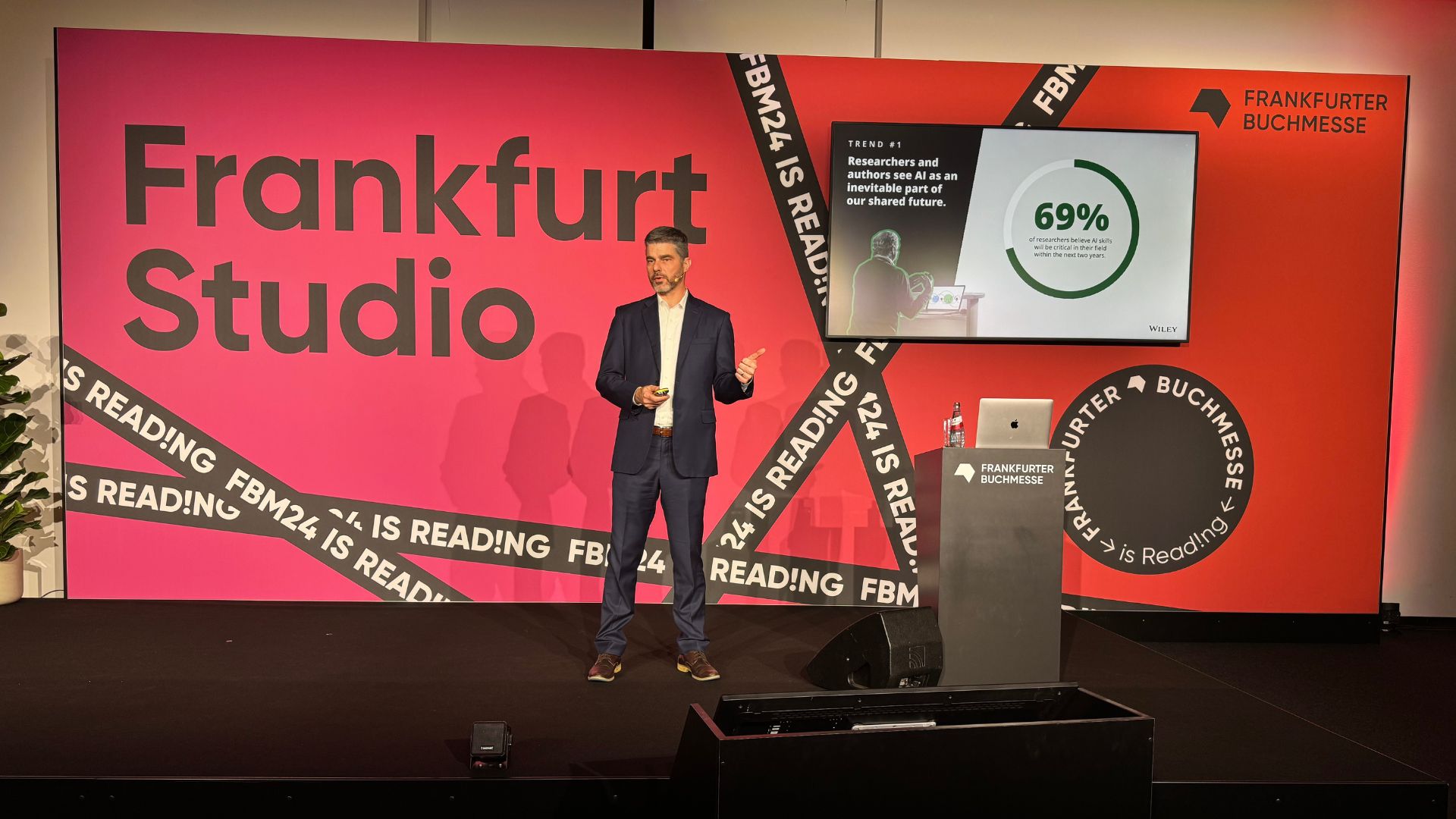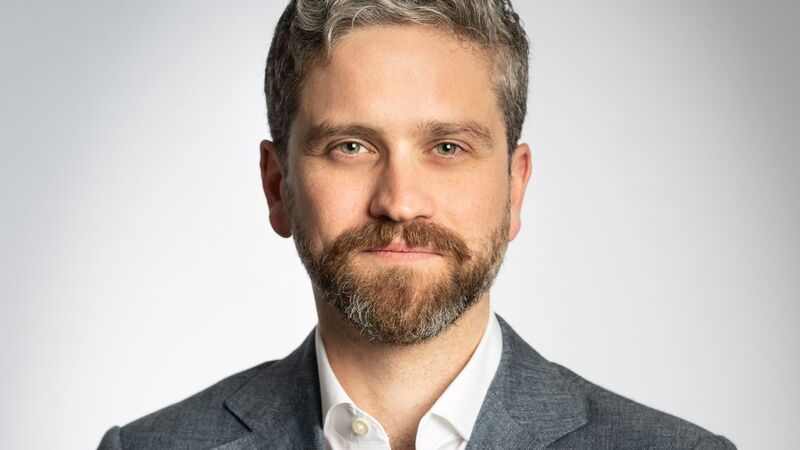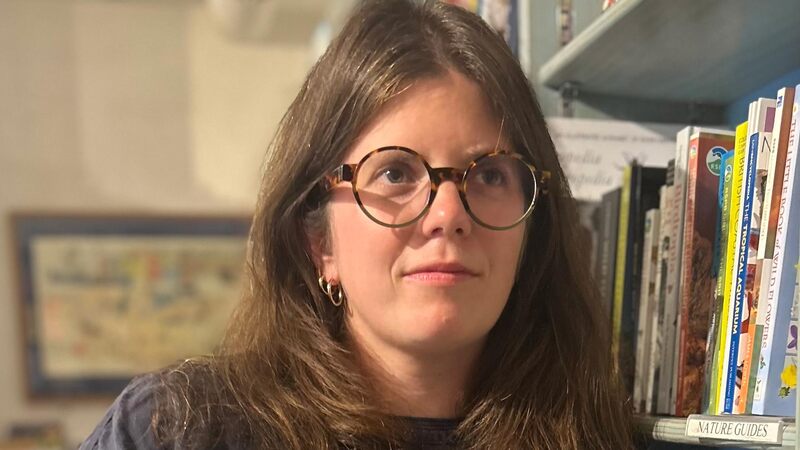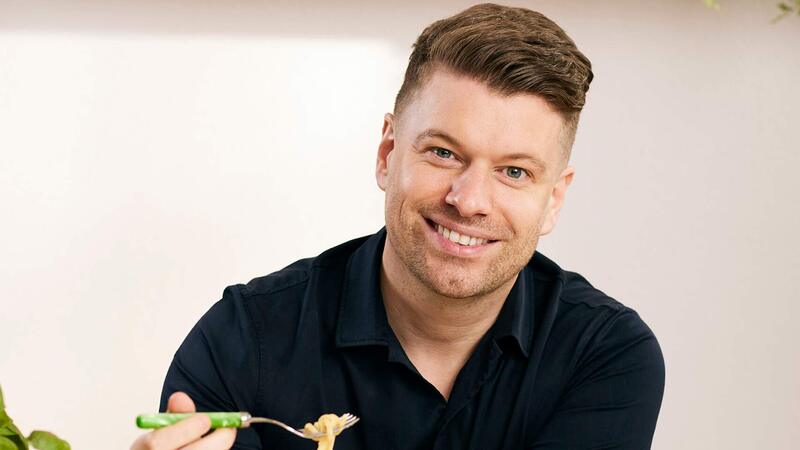You are viewing your 1 free article this month. Login to read more articles.
Wiley launches artificial intelligence programme 'to shape AI rather than be shaped by it'
Academic publisher Wiley is starting an artificial intelligence (AI) partnership programme, in a bid to “shape the AI world and AI future, as opposed to being shaped by it”.
Josh Jarrett, senior vice-president of AI growth at Wiley, announced the “co-innovation” partnership programme at the Frankfurt Book Fair.
Wiley’s first partner is Potato, an AI research assistant “powered by peer-reviewed literature that enables high-quality science”. The partnership will mean Wiley and Potato work together “to advance the application”.
Jarrett told The Bookseller: “Potato is the first example in this broader partnership programme, the Wiley AI partnership, co-innovation programme that we’re going to be announcing tomorrow. This is really part of our broader efforts in AI.
“We really decided to lean in on AI. We think that this creates a lot of opportunities, a lot of challenges, but that we’re going to be able to navigate that as effectively as possible by really being part of the solution, leaning in, experimenting, learning, sharing with our stakeholders, adapting. We really want Wiley and our partners to shape the AI world and AI future, as opposed to being shaped by it.”
The partnership programme will see the development of new AI applications, assistants and agents using Wiley’s “rich authoritative content”.
In August, The Bookseller reported Wiley was set to earn £33m ($44m) in total for two deals with unnamed tech firms in exchange for licensing its content for generative AI, without giving authors the opportunity to opt-out. A Wiley spokesperson said at the time that “creating an opt-out or opt-in for a specific type of licensing on a case-by-case basis would erroneously support AI developers’ specious claim that licensing is not scalable”.
Last week, Wiley said it had surveyed almost 5,000 researchers and 69% of them wanted to keep up with or be ahead of the curve of AI in their field. At the same time, the study highlighted that they require better and more reliable AI tools.
AI tools are known to sometimes “hallucinate” (invent facts that sound plausible but are imaginary), so making them more reliable is a key aspect of Wiley’s programme.
Jarrett told The Bookseller: “Accuracy, citation and transparency are critical principles that we’re big proponents of in our work. The reality is these foundational, large language models (LLM) are, by definition, not deterministic, right? They give you 10 suggestions. They come up with divergent ideas. Every time you ask them, they will give you a slightly different answer. And if they can’t please you, they’re going to hallucinate something.”
He added: “So, for authoritative tasks, we really need to be referring to the source of truth. So for applications like Potato, where we really want to be able to perform authoritative tasks, we want to be using techniques more like RAG (retrieval augmented generation), where we’re using the power of the LLM that understands language and some basic reasoning and creation of generative content, but really saying, point it only at this content, only draw your answers from this authoritative content.”
He continued: “As publishers we have all this rich authoritative content. So when [our partners are] doing that synthesis of the research [via their tools], they want to be able to use the high-quality research that’s published by Wiley to bring those answers back to researchers and avoid some of the challenges of hallucination.”
Wiley is just one among several academic publishers who have either made content licensing deals with or are continuing licensing their authors’ backlists to train LLMs. Taylor & Francis and Wiley have already made licensing agreements, while Sage and Cambridge University Press are considering doing so, with the latter consulting its authors for their permission first. Some academic authors have criticised publishers for making licensing deals without first consulting authors or giving them the option to opt out.
Jarrett says AI is going to radically transform creativity and says it’s better to get on board than to pretend it isn’t happening.
He said: “People are using it already, so we can’t just close our eyes and pretend that it’s not going to happen. We think a lot about AI-augmented creativity. We are going to figure this out together. You know, five years from now, most of the best research will probably have some combination of human created thought and direction, while leveraging tools that are AI. We’re going to have to figure out how to put those two things together and operate in the right ethical frameworks and the right guidelines for universities, publishers and other stakeholders."

















